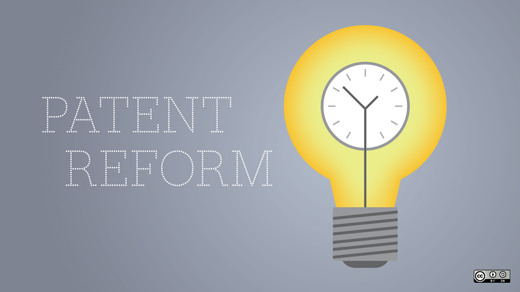Patent reform may have stalled this year at the federal level, but patent trolls may soon find their actions curtailed by a number of patent abuse litigation laws that have been passed or are pending in over twenty U.S. states.
Last year, the state of Vermont passed a law aimed at preventing "bad faith assertions of patent infringement." The law targets the practice of sending demand letters with very little, if any information regarding the patent supposedly infringed and would require the asserting entity to provide the patent number, name and address of the company alleging infringement, and other details regarding the nature of the complaint. It is a common tactic for patent trolls, sometimes called "patent assertion entities" or "non-practicing entities" to send letters with very vague information alleging patent infringement to other businesses, both large and small, in the hopes of extorting a settlement from them to avoid a nuisance lawsuit.
The new law strengthens the Attorney General's existing ability to sue patent trolls under the state's consumer protection law and also creates a new right of action which allows a company who receives a demand letter to sue the sender in state court for damages, equitable relief, and most importantly, attorney’s fees, if they can satisfy certain elements indicating the sender of the letter is engaging in bad faith. The cost to defend a patent suit can quickly climb into the millions of dollars, and it is the threat of those fees, as opposed to any actual infringement, that forces many businesses to settle with patent trolls. A patent troll found liable under Vermont’s new law for engaging in "bad faith" tactics may also be subject to punitive damages amounting to three times the total damages, costs, and attorney’s fees.
Similar bills modeled after the Vermont law have quickly swept through various state legislatures this spring. Georgia, Idaho, Maine, Maryland, Oregon, South Dakota, Tennessee, Utah, Vermont, Virginia, and Wisconsin have recently enacted new laws regarding abusive patent litigation. Bills in Alabama, Illinois, and New Hampshire have passed both chambers of their respective legislatures and await their governors’ signatures, and ten other states have introduced or are considering similar legislation—Connecticut, Kansas, Kentucky, Louisiana, Missouri, New Jersey, North Carolina, Ohio, Pennsylvania, Rhode Island and South Carolina.
Many of these state proposals closely mirror the original Vermont law, although some (Virginia, for example), merely strengthen the existing powers of the Attorney General to bring an action on behalf of state citizens as opposed to creating a new right of action for private persons or companies. The goal is to curb patent trolling against their small business owners.
In contrast to the complications of the Federal debate, it may come as a surprise to hear that there has been surprisingly little opposition to these bills. The North Carolina bill, for example, passed the state House last week 113-0. Although companies and industries who depend on patent licensing as an additional source of revenue have expressed varying levels of concern regarding the ability of patent holders to legitimately protect their intellectual property interests, they, too, deplore the trolling activities of non-practicing entities and have been able to come to agreement on narrowly-tailored language in most states.
One natural question being raised is whether these new state laws will be viewed as conflicting with Federal law, in which case, they would be preempted. Vermont Attorney General Bill Sorrell made headlines last year when he filed a suit under his state’s existing consumer protection law against MPHJ Technology, Inc. for sending demand letters to at least 75 small businesses in Vermont alleging infringement of patents related to scanning documents and sending them via email. It was the first known effort by an attorney general to use state consumer protection law in the realm of patent litigation, and a few attorneys general in other states have filed similar suits or opened investigations against patent trolls since then.
MPHJ immediately filed to have the Vermont case removed to federal court, arguing that the claims involve the infringement and enforcement of patents, which are in the purview of the federal courts. Federal District Judge William K. Sessions III disagreed and wrote, "[T]he state is targeting bad faith conduct irrespective of whether the letter recipients were patent infringers or not, on the basis that MPHJ's bad faith conduct would be unlawful even MPHJ's patents were valid and the conduct was directed toward actual patent infringers."
Although this case did not test the new Vermont law (the Attorney General sued MPHJ before it had been passed), it is still an indication that the new state laws targeting demand letter shakedowns may well survive preemption challenges.
These state laws are unlikely to stop patent trolling altogether, but it is possible that we will at the very least see increased transparency in demand letters and more timely responses to clarification requests in order for them to avoid running afoul of potential suits from target companies or state Attorneys General. For years, patent trolls engaged in the tactic of sending vague demand letters to extort settlements, because they had much to gain and nothing to lose. State officials have decided it's time to turn the tables.







4 Comments